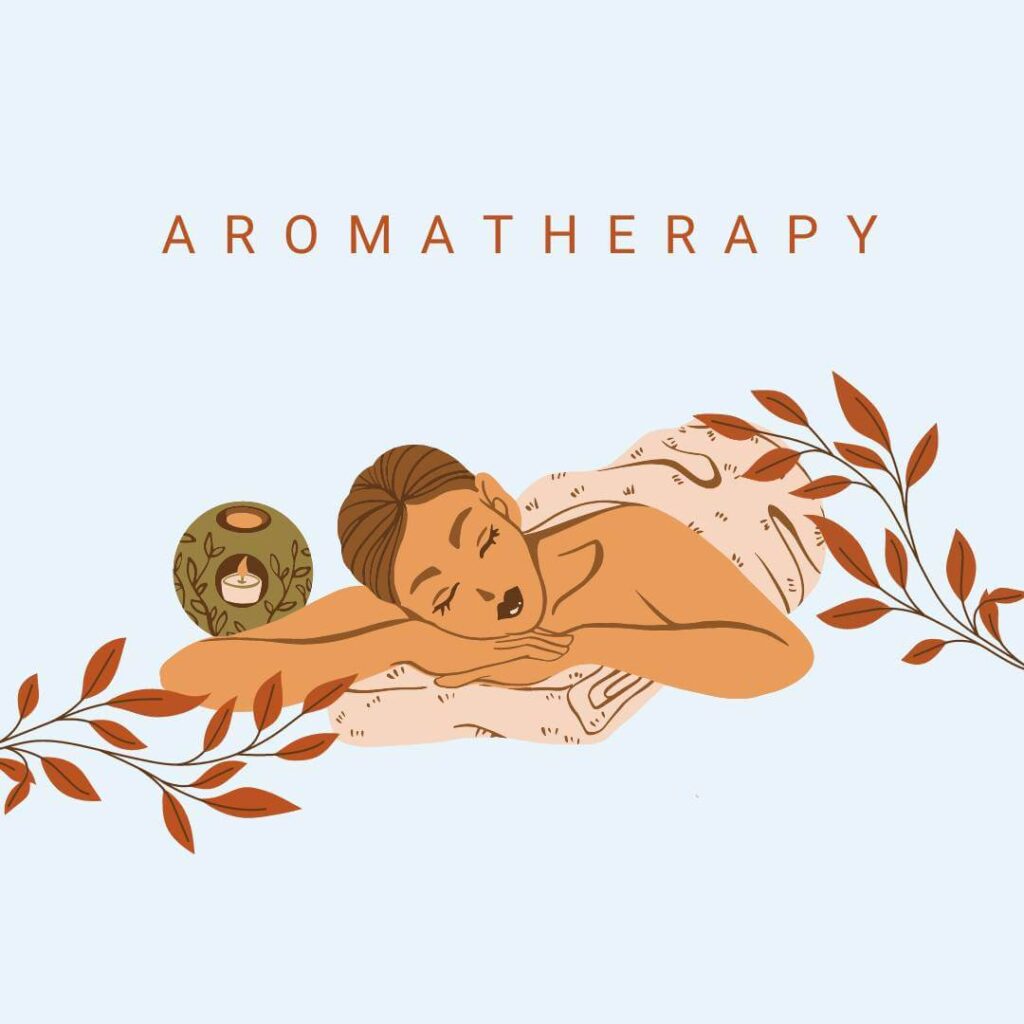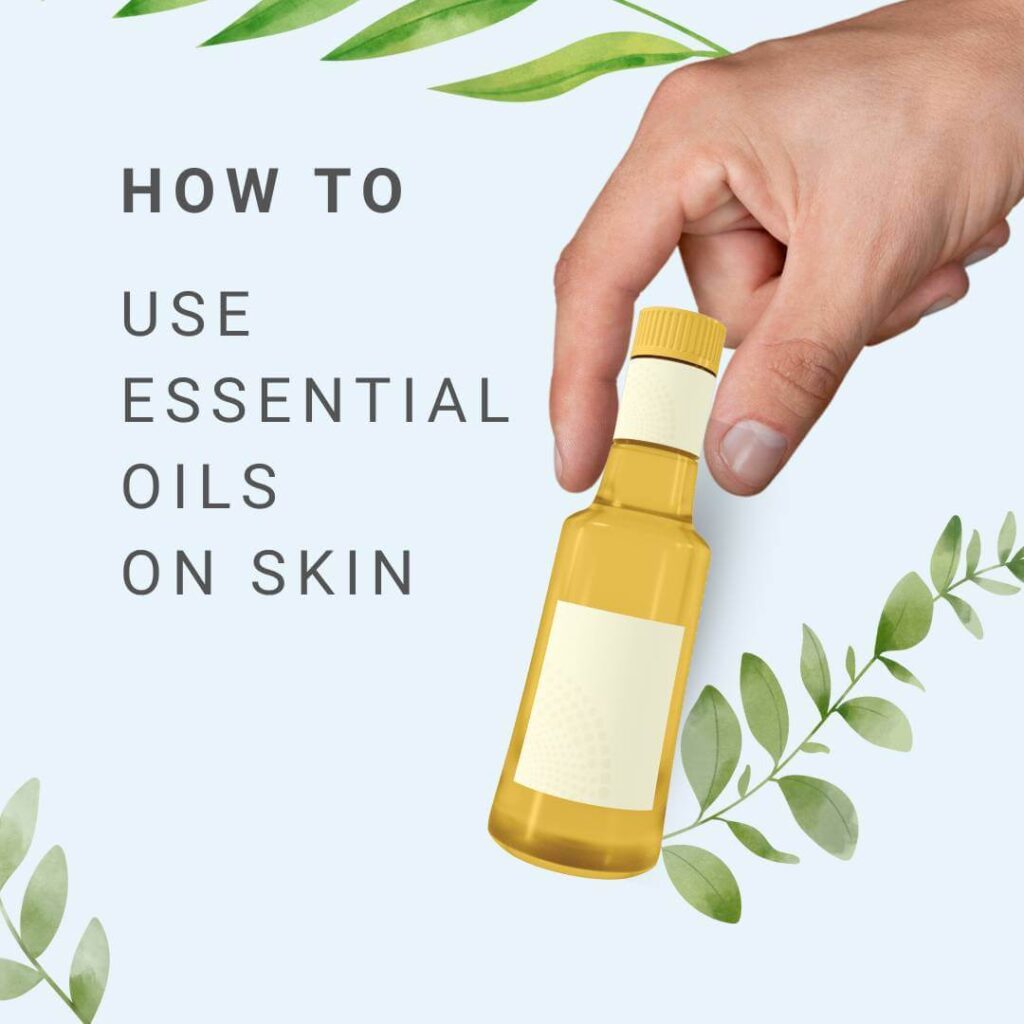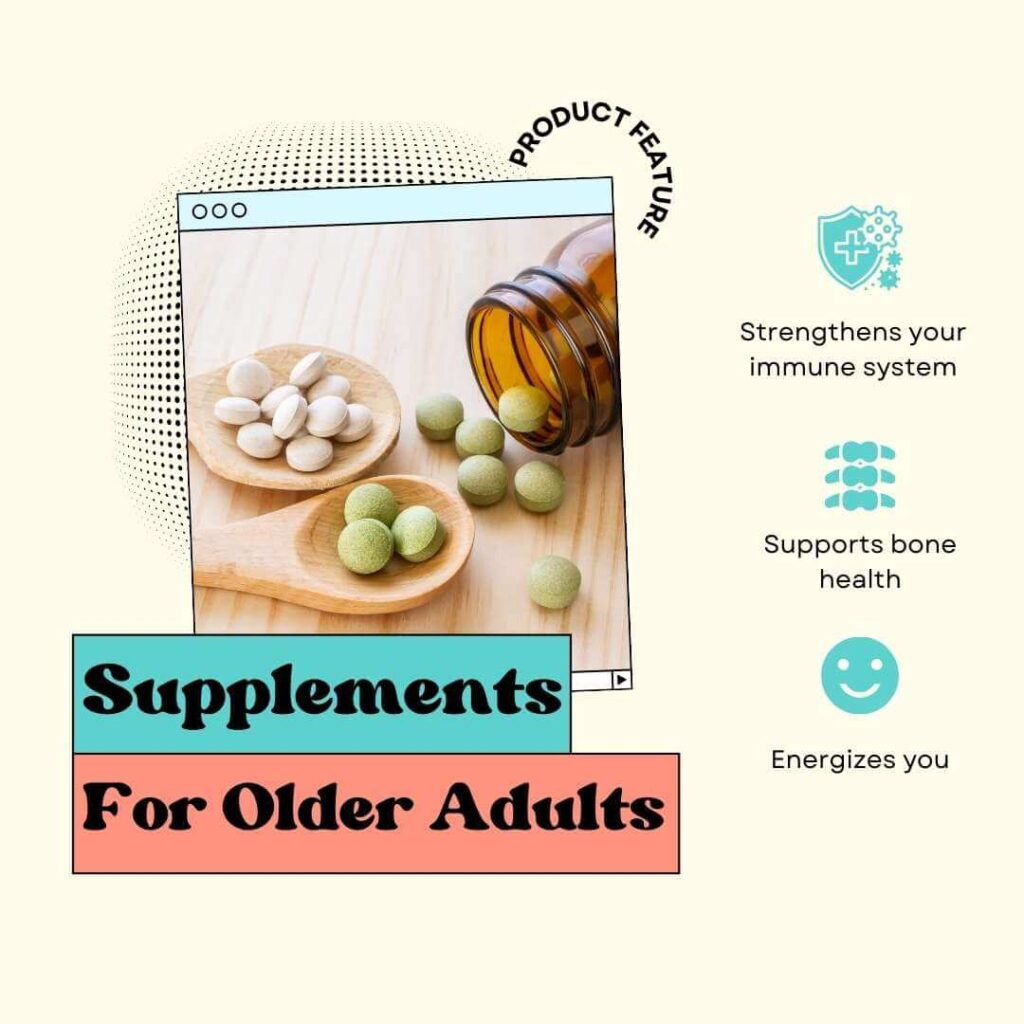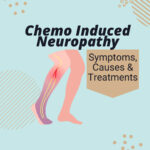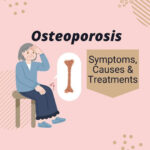As we age, it becomes increasingly important to prioritize our health and well-being. One way to do this is by incorporating essential oils into our daily routines. Whether it’s for aromatherapy, skincare, haircare, or more, essential oils offer a natural alternative to traditional remedies. Specifically, essential oils have been found to be effective for:
- Promoting better sleep: Essential oils can work wonders in calming your mind and relaxing your body. The gentle aromas can help calm racing thoughts and create a tranquil environment conducive to restful sleep.
- Reducing anxiety: Essential oils offer an all-natural solution that may help ease those anxious feelings. The calming properties found in certain oils can provide relief from stress and tension, promoting relaxation and tranquility.
- Supporting a healthy immune system: Certain essential oils also possess antimicrobial benefits that can support a healthy immune system. Oils with natural antibacterial and antiviral properties can help fend off harmful pathogens.
- Skincare: Essential oils can be really helpful for taking care of your skin. They have natural properties that can moisturize, soothe, and even heal your skin.
- Hair health: Certain essential oils have properties that can help moisturize your scalp, prevent dandruff, and even promote hair growth.
With a wide selection of brands and products available in the market, finding the right ones can be overwhelming. That’s why we have selected the best essential oils for older adults, categorized by the 5 primary benefits of essential oils.
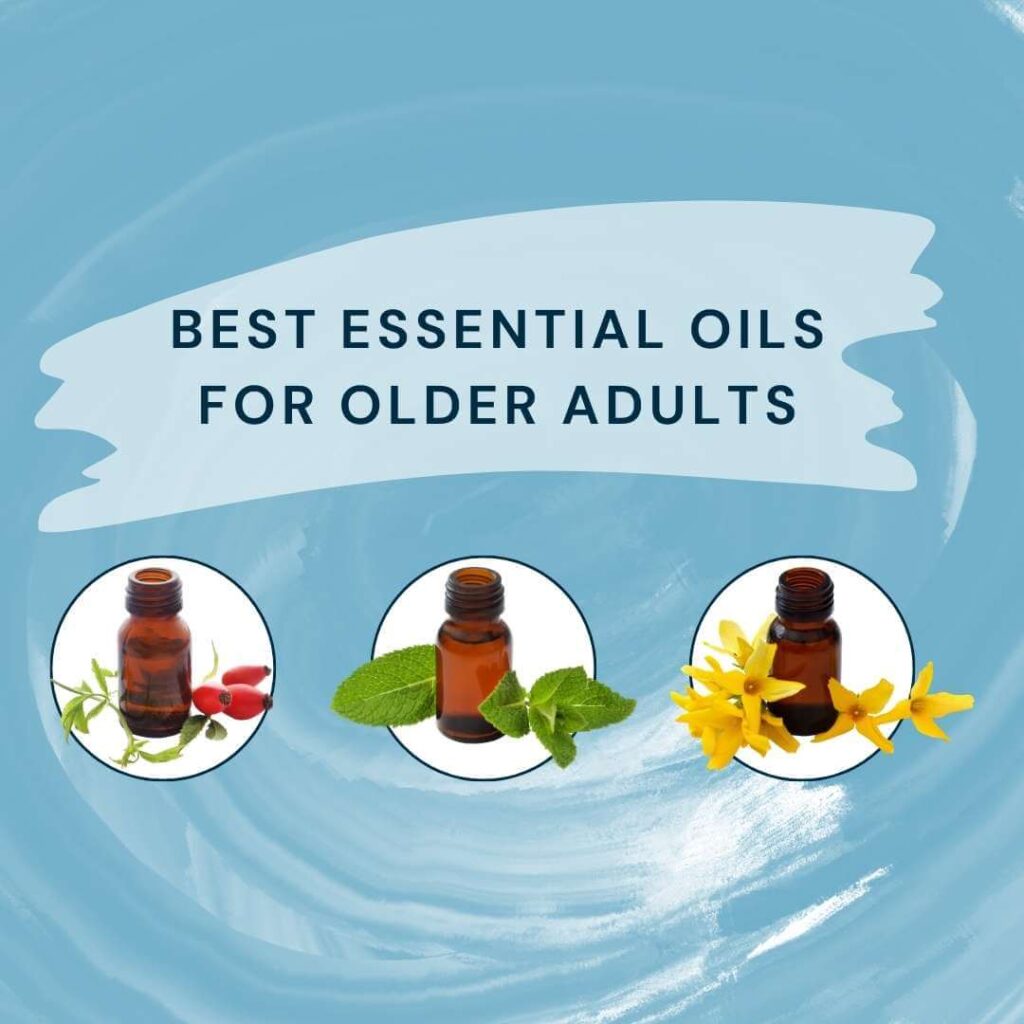
Best Essential Oils for Sleep Support
To use essential oils for better sleep, you have several options. You can add a few drops of your chosen oil to a diffuser or vaporizer in your bedroom before bedtime. The gentle scent will fill the air, creating a serene atmosphere that signals it’s time to unwind. Alternatively, you can mix a few drops of essential oil with a carrier oil like coconut or jojoba oil and apply it topically on your wrists or neck before bed. Learn all about aromatherapy here.
Lavender Oil: Calming Effects for Restful Sleep
Lavender oil is widely recognized for its calming effects on the nervous system, making it a popular choice for promoting restful sleep. The soothing aroma of lavender has been used for centuries to help individuals relax and unwind before bedtime. Research suggests that inhaling lavender oil can reduce anxiety levels and improve sleep quality.
Roman Chamomile Oil: Falling Asleep Faster
If you struggle with falling asleep quickly, Roman chamomile oil may be just what you need. This essential oil possesses sedative properties that can help induce drowsiness and promote faster sleep onset. It helps calm racing thoughts and reduces anxiety levels.
Vetiver Oil: Relaxing an Overactive Mind
An overactive mind can be a significant barrier to achieving deep, rejuvenating sleep. If you often find yourself tossing and turning due to racing thoughts, vetiver oil may offer some relief. This essential oil has grounding properties that help calm an overactive mind and promote relaxation.
Vetiver oil works by slowing down the activity of the nervous system, allowing your mind to quiet down naturally. Its earthy aroma has a deeply relaxing effect and can create a sense of tranquility in your bedroom environment.
Bergamot Oil: Reducing Stress Levels for Better Sleep Quality
Stress is one of the leading causes of disrupted sleep patterns and poor sleep quality. If stress is keeping you awake at night, bergamot oil may provide some relief.
The oil has a refreshing and uplifting scent that can instantly boost your mood and reduce stress levels. When inhaled, the aroma of bergamot oil stimulates the production of serotonin and dopamine, which are neurotransmitters responsible for promoting feelings of happiness and relaxation. Additionally, bergamot oil has been found to regulate the production of cortisol, a hormone associated with stress. By reducing cortisol levels, bergamot oil promotes a deeper and more restful sleep.
Best Essential Oils for Anxiety Relief
Frankincense Oil: Promoting Tranquility
Frankincense oil is one of the best essential oils for anxiety relief. When inhaled or applied topically, frankincense oil interacts with the limbic system of the brain, which plays a crucial role in regulating emotions. It helps calm the mind and reduces stress levels, making it an excellent choice for those seeking natural remedies for anxiety.
Ylang Ylang Oil: Lowering Blood Pressure and Heart Rate
Another powerful essential oil for anxiety relief is ylang ylang oil. This floral-scented oil not only smells delightful but also has remarkable benefits.
Ylang ylang essential oil works by lowering blood pressure and heart rate, helping to calm both the body and mind. By promoting relaxation, it can alleviate feelings of stress and anxiousness that often accompany anxiety disorders.
Clary Sage Oil: A Natural Antidepressant
Clary sage oil is well-known for its antidepressant properties, making it an excellent choice for anxiety relief. This essential oil has a calming effect on the nervous system, helping to alleviate feelings of stress and anxiety. It can also uplift your mood and create a sense of calm.
Sweet Orange Oil: Uplifting Mood and Calming Nerves
Sweet orange oil is not only refreshing but also offers significant benefits for those seeking anxiety relief. The scent of sweet orange oil has been found to have anxiolytic effects, meaning it helps reduce anxiety levels. Inhaling this delightful citrus aroma can instantly boost your mood and promote relaxation, making it an ideal choice for those experiencing stress or anxious thoughts.
Best Essential Oils for Skin Care
To use essential oils for skin care effectively, simply dilute a few drops in a carrier oil like jojoba or coconut oil, or add a few drops to you moisturizer or serum. Gently apply the mixture to your skin using a cotton pad or your fingertips. Allow it to absorb before following up with your regular moisturizer or other skincare products. Learn all about how to use essential oils on skin here.
Tea Tree Oil: Banish Acne and Blemishes
Tea tree oil is a powerhouse. Its potent antibacterial properties make it an excellent choice for those with acne-prone skin. This natural remedy helps combat the bacteria that can clog pores and lead to breakouts. By applying tea tree oil topically, you can reduce inflammation, redness, and swelling associated with acne.
Rosehip Seed Oil: Embrace Youthful Radiance
Packed with antioxidants and vitamins A and C, this essential oil nourishes and rejuvenates your complexion. The antioxidants help protect against free radicals that contribute to premature aging, while vitamins A and C promote collagen production for firmer, smoother skin.
Sandalwood Oil: Soothe Irritated Skin
If you struggle with irritated or sensitive skin, this essential oil can be incredibly beneficial. It calms inflammation while providing hydration and relief from itching or dryness. With its calming effects, sandalwood oil will leave your skin feeling refreshed and revitalized.
Geranium Oil: Achieve Healthy, Glowing Skin
One of the remarkable qualities of geranium oil is its ability to balance sebum production. Whether you have oily or dry skin, geranium oil helps regulate the natural oils on your face, promoting a healthy and balanced complexion.
Best Essential Oils for Hair Health and Growth
To use essential oils for hair health and growth, you can add a few drops to your shampoo or conditioner. Alternatively, you can dilute it with a carrier oil such as marula oil or coconut oil before massaging it gently into your scalp. Leave it on for about 15 minutes before rinsing thoroughly.
Peppermint Oil: Stimulate Hair Growth with a Refreshing Twist
Peppermint oil has been found to stimulate blood circulation to the scalp, increasing the flow of oxygen and nutrients to the hair follicles. This provides them with the nourishment they need to thrive, which in turn promotes hair growth.
Rosemary Oil: Strengthens Hair Follicles for Luscious Locks
If you’re looking to prevent hair loss and strengthen your tresses, rosemary oil should be on your radar. Rosemary oil contains powerful antioxidants that help protect the cells in your scalp from damage caused by free radicals. By strengthening the hair follicles, rosemary oil helps prevent breakage and shedding, resulting in thicker and fuller-looking locks.
Cedarwood Oil: Promote a Healthy Scalp
If you’re looking for a natural solution to combat dandruff and promote a healthier scalp, cedarwood oil is worth considering. Cedarwood oil has been shown to have antimicrobial properties that help balance sebum production on the scalp. By regulating the production of sebum, an oily substance secreted by the scalp, cedarwood oil helps prevent dandruff caused by an excessively dry or greasy scalp.
Clary Sage Oil: Regulate Oil Production
Clary sage essential oil is a great choice for keeping your hair healthy and balanced. Its unique properties help maintain a healthy balance of sebum by reducing the activity of overactive sebaceous glands. By balancing oil production, clary sage essential oil can help individuals with both dry and oily hair types achieve more harmonious and manageable hair.
How to Use Essential Oils Safely and Effectively
Follow these steps when using essential oils:
- Dilute essential oils with a carrier oil before applying them topically to avoid skin irritation. Some popular carrier oils include coconut oil, jojoba oil, almond oil, and grapeseed oil. These carrier oils are gentle on the skin and help spread the essential oil evenly over a larger area.
- Conduct a patch test before using any new essential oil to check for allergic reactions. Before incorporating a new essential oil into your routine, it is recommended to conduct a patch test. This involves applying a small amount of diluted essential oil to a small area of your skin and observing for any adverse reactions over 24 hours. Patch testing helps identify potential allergies or sensitivities before applying essential oils more extensively on larger areas of your body. It is especially important if you have sensitive skin or known allergies.
- Use a diffuser to disperse essential oils into the air for aromatherapy benefits. In addition to topical use, using a diffuser is an effective way to enjoy the aromatic benefits of essential oils. A diffuser disperses tiny particles of the essential oil into the air, allowing you to inhale them easily.
Exploring the Power of Essential Oils
Essential oils have been used for centuries in various cultures for their therapeutic properties. These highly concentrated plant extracts have gained popularity due to their natural and holistic approach to wellness.
From promoting better sleep to relieving stress and managing pain, there’s an essential oil for nearly every aspect of senior health.
By harnessing the power of nature’s aromatic compounds, essential oils can enhance your well-being in various ways. Whether you are struggling with insomnia or seeking a natural solution to alleviate anxiety, incorporating essential oils into your daily routine can make a significant difference.
To ensure you use essential oils safely and effectively, remember to dilute them properly before applying them topically or using them in aromatherapy. Always consult with a healthcare professional if you have any underlying medical conditions or concerns.
FAQs
Can I ingest essential oils for their benefits?
While some essential oils are safe for internal use when used appropriately and under guidance from a qualified professional, it is generally recommended to avoid ingesting essential oils without proper knowledge and supervision. Ingesting certain essential oils can be toxic or cause adverse reactions. Always consult with a certified aromatherapist or healthcare practitioner before considering internal use.
How long does it take for essential oils to work?
The time it takes for essential oils to work varies depending on several factors such as individual response, method of application, and specific oil being used. Some people may experience immediate effects upon inhalation or topical application, while others may require consistent use over time to notice significant improvements in their desired outcomes.
Are there any side effects associated with using essential oils?
Although generally considered safe when used correctly, some individuals may experience allergic reactions or skin irritation when using certain essential oils. It is crucial to perform a patch test before applying an oil topically and discontinue use if any adverse reactions occur. Pregnant or breastfeeding women, as well as individuals with specific medical conditions, should exercise caution and seek professional advice before using essential oils.
Can essential oils replace conventional medicine?
Essential oils should not be used as a substitute for conventional medical treatment. While they can complement certain therapies and provide additional support, it is important to consult with a healthcare professional for proper diagnosis and treatment of any health condition.
How do I choose the best essential oil brand?
When selecting an essential oil brand, consider factors such as sourcing practices, quality testing procedures, certifications, customer reviews, and transparency in labeling. Look for brands that prioritize purity, sustainability, and ethical practices to ensure you are purchasing high-quality essential oils that meet your needs effectively.
References
https://www.ncbi.nlm.nih.gov/pmc/articles/PMC7309671/
https://pubmed.ncbi.nlm.nih.gov/26338021/
https://pubmed.ncbi.nlm.nih.gov/18041606/
You May Also Like
- How To Improve Gut Microbiome – 26 May 2024
- Chemo neuropathy treatment: What to do? – 19 May 2024
- How to Prevent Osteoporosis: Effective Strategies & Simple Steps – 28 December 2023

